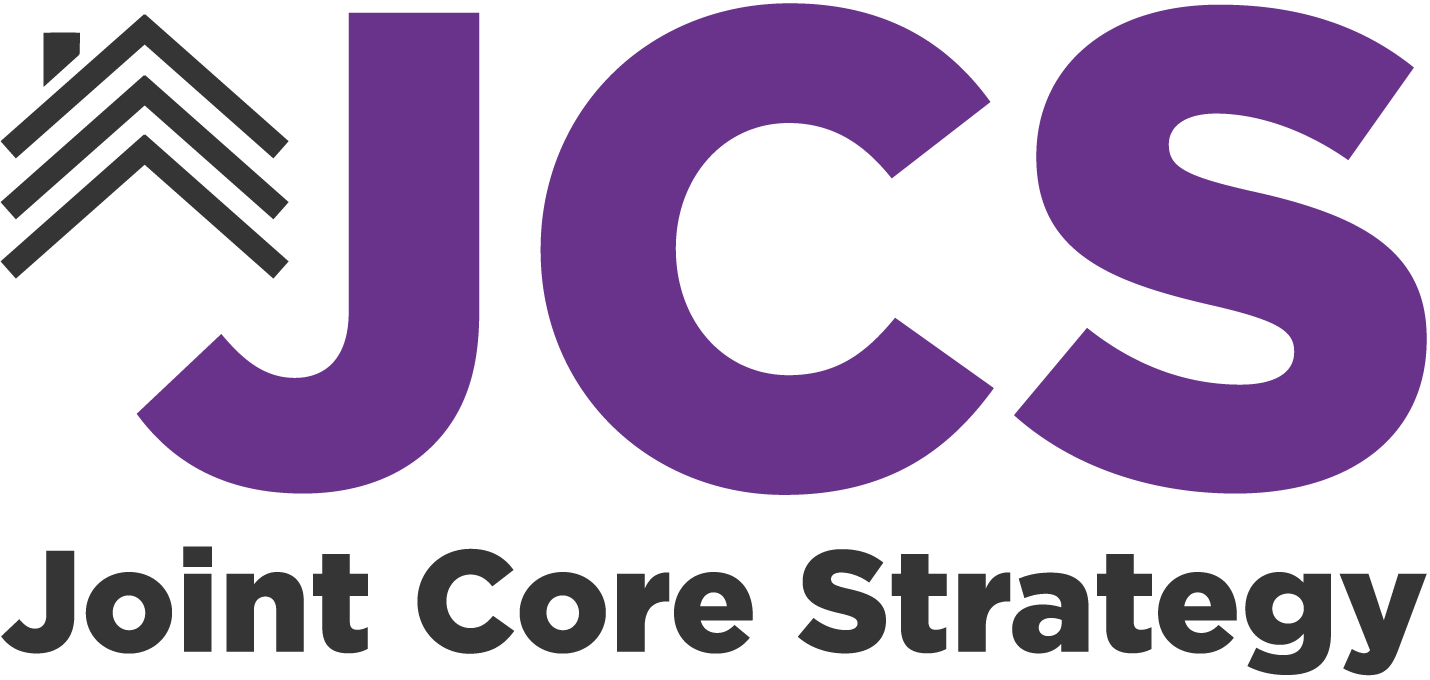Please note: This page is no longer being updated and is for information only. It relates to the now adopted Joint Core Strategy.
Why was GCT Joint Core Strategy Partnership formed?
The GCT JCS partnership was formed in March 2008 when Gloucester City Council, Cheltenham Borough Council and Tewkesbury Borough Council, with input from Gloucestershire County Council, decided to produce a Joint Core Strategy.
Producing a Joint Core Strategy presents a number of opportunities. In particular it means that cross-boundary issues can be addressed and that a consistent approach can be taken towards new development. Producing a joint strategy is also consistent with national and regional planning policy.
Who makes decisions about the GCT Joint Core Strategy?
Who makes decisions about the GCT Joint Core Strategy?
An effective and accountable governance structure is essential to the successful production of the Joint Core Strategy. Statutory Bodies, Local Strategic Partnerships and Elected Members from the partnership authorities are all represented within the GCT Governance structure.
What is a Local Development Framework?
The 2004 Planning and Compulsory Purchase Act introduced the Local Development Framework system of plan preparation. All local authorities are required to prepare a Local Development Framework (LDF). The LDF is a suite of planning policy documents that together form the development plan for the area.
Further information about the LDF system is available on the Planning Portal website.
What is a Core Strategy?
The Core Strategy is the most important part of the Local Development Framework. All other planning policy documents must be in conformity with the Core Strategy. It identifies the key, strategic issues of most importance to the local area and translates these into a strategy for tackling them. Examples include how to provide more affordable housing, reduce traffic congestion and address climate change.
Further information about Core Strategies is available on the Planning Portal website.
Is the Local Development Framework being produced jointly?
No. The GCT JCS partnership is responsible for producing a Joint Core Strategy. All other planning policy documents will be the responsibility of the individual local authorities. Further information about which planning policy documents the individual local authorities will produce is available in their Local Development Schemes, available on their websites.
How can I make my views known?
It is very important to the JCS Team that everyone is given the opportunity to influence the Joint Core Strategy. You can contact the JCS Team at any time using the Contact Us link and the Consultation section on the website has details of all the ways in which the JCS Team will contact key stakeholders and members of the public during the production of the Joint Core Strategy.
What happened to the Statements of Community Involvement?
Gloucester City and Cheltenham Borough Councils have adopted Statements of Community Involvement. The JCS Team has produced a Consultation Statement which sets out how the Joint Core Strategy production process will meet the requirements of the adopted Statements of Community Involvement.
What will be the status of Joint Core Strategy?
The Joint Core Strategy will replace some of the saved policies of the individual local authorities adopted Local Plans. On adoption the Joint Core Strategy, together with any saved local plan policies that have not been superseded, and any other individually adopted Development Plan Documents, will form the development plan for the individual authorities area.
What is the Regional Spatial Strategy?
The South West Regional Spatial Strategy guides development across the South West Region. All planning policies must be in conformity with the Regional Spatial Strategy. The Regional Spatial Strategy sets the number of houses that need to be built within each local authority and the general location for major development such as urban extensions.
The South West Regional Assembly prepared, in partnership with regional stakeholders, a revised draft RSS and submitted its Draft Regional Spatial Strategy for the South West 2006 - 2026 to Government Office for the South West in 2006. The public consultation period on the draft RSS ended on 30 August 2006. The draft RSS was subject to independent testing at an Examination in Public (EiP) held in Exeter between 17 April 2007 and 6 July 2007. The Panel's report was published on 10 January 2008.
The Secretary of State for Communities and Local Government published Proposed Changes to the draft Regional Spatial Strategy. The public consultation period on the proposed changes ended on 24 October 2008. Once the Regional Spatial Strategy for the South West is approved by Government it will replace Regional Planning Guidance for the South West (RPG10). It will be a statutory document with which all local authority planning policies will need to conform.
If you have any further questions about the Joint Core Strategy, please feel free to contact a member of the JCS Team.
